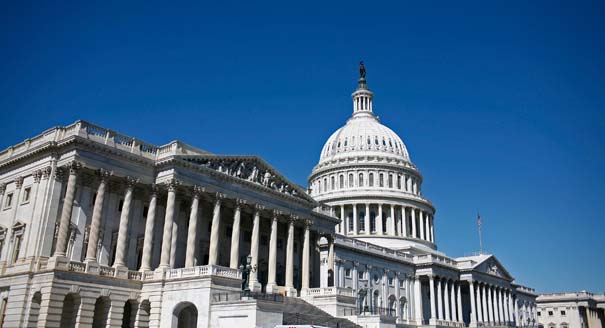Arms supplies from Russia to Iran will not only continue, but could grow significantly if Russia gets the opportunity.
Nikita Smagin

Source: Getty
Despite concerns that the global economic crisis will lead to political instability around the world, research shows that governments are more often resilient in the face of economic hardship.
As the global economic crisis unfolds, many observers are wondering what political effects it will have around the world. Will it produce significant amounts of political instability? Will its damaging political effects fall especially hard on the many weak or struggling democracies in the world, thereby producing a reversal of democracy’s gains of recent decades? To help deepen these discussions empirically, it is useful to consider the findings of research on the political effects of other economic crises of recent decades. Of course drawing clearcut lessons from the complex past record of economic crises is a difficult and necessarily tentative undertaking. And no matter how sophisticated such research is, broader, subtle long-term changes in global economics and politics can mean that patterns from the past may not hold in the future. Nevertheless, existing research offers important insights about the amount of instability that might occur—including whether it may consist more of changes of government or changes in systems of government—as well as whether democratic or authoritarian governments will suffer more. Three important findings emerge from the research:
1. In the great majority of past cases, economic crisis did not lead to regime change. In fact, it often did not even lead to a change of government.
In the most comprehensive article on this topic, Minxin Pei and David Adesnik (2000) examine the political effects of 93 economic crises—defined as an annual inflation rate greater than 15 percent, and stagnant or negative annual GDP growth—in Asia and Latin America between 1945 and 1998. Contrary to what might be expected, they find that economic crisis contributed to regime change in only 30 cases. Six of these cases fit the model of an immediate Suharto-style regime collapse; in the rest, regime change occurred after a time lag of about eighteen to 30 months. Perhaps most surprising, however, is their finding that in only about 18 of the remaining 63 cases did economic crisis lead even to a change in government.
What explains these findings? Pei and Adesnik speculate that three factors might be at work. First, the timing has to be right for economic crises to have an observable political impact. In about one-fifth of the cases with no change, the economic difficulties had ended prior to the next election. Second, in ten of the cases, the economic crisis was overshadowed by an existing political crisis. Finally, economic crises were less likely to produce regime change during the 1980s and 1990s than in the previous two decades. That this trend coincides with the most recent wave of democratization in Latin America and Asia is no coincidence, and leads to the second major finding of the research.
2. Democracies have been more resilient against the destabilizing effects of economic crises than nondemocratic regimes (except for one-party authoritarian regimes).
Several authors have found that democracies weather economic crises more effectively than authoritarian regimes, including Remmer (1996), who focuses on South America between 1944 and 1994, and Haggard (2000), who focuses on the Asian financial crisis. Pei and Adesnik (2000) again provide the most systematic evidence for this conclusion. Of the 40 economic crises that occurred in democratic countries, sixteen led to changes of government and only ten resulted in regime change. In contrast, of the 34 crises that occurred in restricted democracies and military regimes, half led to regime collapse. The one exception to this trend lies with one-party authoritarian regimes (as opposed to softer authoritarian regimes), which proved to be invulnerable to economic crisis. None of the ten crises observed by Pei and Adesnik led to a change of government or regime in such countries.
Democracy’s advantage lies in the flexibility that institutionalized opportunities for political change provide. Regular elections offer citizens a much simpler means of punishing politicians for the economic crisis than regime change. Citizens can also distinguish between institutions and politicians. Surveys of citizens of former communist regimes in Eastern Europe during economic crises have found that they still support democracy because they have negative memories of authoritarian regimes and value having political choice (Duch 1995). In nondemocratic regimes, regime change may be the only means to obtain a change of policy. Their legitimacy is also much more likely to be heavily performance-based.
3. Several factors increased the likelihood of economic crisis leading to regime change: weak internal cohesion among the ruling elites prior to the crisis, weak civilian control over the military, domestic conflicts—such as ideological polarization, labor unrest, and challenges from insurgency movements—and in the case of authoritarian regimes, the existence of a moderate and credible opposition movement.
Economic crises can magnify the destabilizing political impact of all of these factors (Pei and Adesnik 2000). Deciding on an appropriate policy response to economic crisis can be an intensely divisive process for ruling elites. Economic crises can also prove a useful mobilization tool for segments of the population that already have grievances with the regime.
Haggard and Kaufman’s (1995) examination of the political effects of the debt crisis in Latin America in the late 1970s and early 1980s illustrates how these factors can interact with an economic crisis to trigger regime change. The debt crisis exacerbated existing schisms within the ruling elites of many authoritarian countries by undermining the basis of these regimes’ legitimacy and stimulating the defection of many business elites from the ruling coalition who questioned the regimes’ ability to cope with the crises. Combined with increased popular protest as opposition movements used the deteriorating economic conditions to recruit new followers, the debt crisis helped prompt softliners within these regimes to conclude that the costs of further coercion outweighed the benefits of such coercion and to look for a way to negotiate their withdrawal. The presence of moderate opposition movements solidified the decision of softliners to negotiate, since presumably these movements would agree to more favorable terms for the outgoing regime.
These factors can also explain the invulnerability of one-party authoritarian regimes to economic crises. Such regimes generally have much more centralized organizational structures as well as strong coercive apparatuses, both of which make cleavages within ruling elites less likely. They are also likelier to have developed more extensive roots to major interest groups in society, usually through patronage, thus decreasing the potential for popular unrest.
Unique features of the current global economic crisis?
In short, the record of past economic crises suggests caution about any predictions that the current global economic crisis will unleash a tidal wave of political change. Moreover, what change does occur may well damage nondemocratic governments at a greater rate than democratic ones.
Are there any distinctive features about the current economic crisis that may make its political effects different from past ones? Depending on the course of the crisis it could be substantially more severe than previous crises, therefore having greater political effects. This is not a given, however. The Asian financial crisis, for example, was quite severe in the affected countries. And Pei and Adesnik found that, at least in Latin America, more severe economic crises did not always provoke greater political instability than more mild ones.
A difference that might cut in the other direction is that the current crisis is widely seen as originating in the United States, rather than in the developing world, as was the case with the Latin American debt crisis of the 1980s and the Asian financial crisis of the late 1990s. One could hypothesize that this fact will tend to lessen the political damage that developing country governments experience because they may be able to shift some of the blame on the part of their citizens away from themselves to the United States. Whether this will be a successful strategy or not will probably depend greatly on the local political context, in particular the domestic credibility of the government in question.
Julia Brower is a junior fellow in the Democracy and Rule of Law Program at the Carnegie Endowment. Thomas Carothers is vice president for studies at the Carnegie Endowment.
References
Duch, Raymond. 1995. “Economic Chaos and the Fragility of Democratic Transition in Former Communist Regimes.” Journal of Politics, vol. 57, no. 1 (February): 121–58.
Epstein, Edward C. 1984. “Legitimacy, Institutionalization, and Opposition in Exclusionary Bureaucratic-Authoritarian Regimes.” Comparative Politics, vol. 17, no. 1 (October): 37–54.
Haggard, Stephan and Robert R. Kaufman. 1995. The Political Economy of Democratic Transitions. Princeton: Princeton University Press.
Haggard, Stephan. 2000. The Political Economy of the Asian Financial Crisis. Washington, D.C.: Institute for International Economics.
Pei, Minxin and Ariel David Adesnik. 2000. “Why Recessions Don’t Start Revolutions.” Foreign Policy (Spring): 138–51.
Remmer, Karen. 1991. “The Political Impact of Economic Crisis in Latin America in the 1980s.” American Political Science Review, vol. 85, no. 3 (September): 777–800.
Remmer, Karen. 1996. “The Sustainability of Political Democracies: Lessons From South America.” Comparative Politics, vol. 29, no. 6 (December): 611–34.
Julia Brower

Harvey V. Fineberg Chair for Democracy Studies; Director, Democracy, Conflict, and Governance Program
Thomas Carothers, director of the Carnegie Endowment for International Peace’s Democracy, Conflict, and Governance Program, is a leading expert on comparative democratization and international support for democracy.
Carnegie does not take institutional positions on public policy issues; the views represented herein are those of the author(s) and do not necessarily reflect the views of Carnegie, its staff, or its trustees.
Arms supplies from Russia to Iran will not only continue, but could grow significantly if Russia gets the opportunity.

Nikita Smagin
On the fourth anniversary of Russia’s full-scale invasion, Carnegie experts discuss the war’s impacts and what might come next.



Eric Ciaramella, Aaron David Miller, Alexandra Prokopenko, …
The use of technology to mobilize Russians to vote—a system tied to the relative material well-being of the electorate, its high dependence on the state, and a far-reaching system of digital control—is breaking down.

Andrey Pertsev
New data from the 2026 Indian American Attitudes Survey show that Democratic support has not fully rebounded from 2020.


Sumitra Badrinathan, Devesh Kapur, Andy Robaina, …
The speech addressed Iran but said little about Ukraine, China, Gaza, or other global sources of tension.

Aaron David Miller